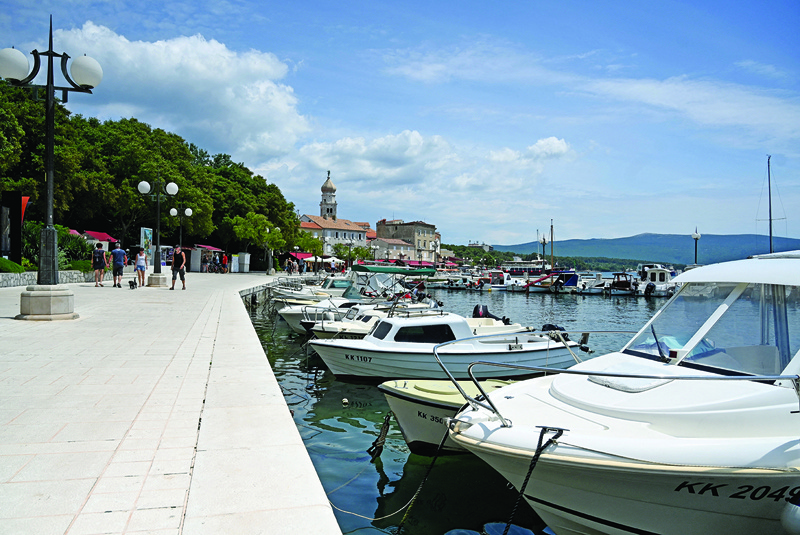 Tourists walk on the waterfront of the resort of Krk, on the northern island of Krk.
Tourists walk on the waterfront of the resort of Krk, on the northern island of Krk.Melissa Paul described it as a "beautiful gift" when she became Croatia's first official digital nomad earlier this year, benefiting from a visa scheme that the country hopes will help promote its pandemic-hit travel industry. "Croatia is gorgeous, it's beautiful living here, affordable compared to other places, has a great climate, good internet access," says the American marketing consultant, who lives among cobblestone streets in Labin, a hilltop town overlooking the Adriatic.
Paul got her visa in January, joining a global army of workers plying their trades in foreign countries since the pandemic ushered in an era of working from home for millions. Croatia offers the special visas to digital workers from outside the European Union, allowing them to stay for up to a year and exempting them from income tax. Applicants need to prove they work remotely, have accommodation and health insurance and earn at least 2,200 euros ($2,700) a month.
Paul is one of about 100 people to have applied since the scheme started in January, more than half of them Americans and British. The government has so far approved 33 visas and ministers hope the idea will take off once virus-related travel restrictions are lifted. Tourism makes up around one-fifth of the economy in the EU nation of 4.2 million people, but the number of visitors plummeted from 21 million in 2019 to seven million last year. Income more than halved to 4.8 billion euros in 2020 compared with the previous year. The crisis has particularly affected southern areas such as Dubrovnik, where visitors arrive mostly by plane.
'Very unique'
With the drop-off in tourism, the time was ripe for a fresh idea, and Croatia-based Dutch entrepreneur Jan de Jong was on hand to supply it. He used social media last year to call on Prime Minister Andrej Plenkovic to introduce the visas-and six months later they became reality. "Croatia overall, especially in the combination of things, offers a very unique experience," De Jong says, highlighting the scenery, connections with the rest of Europe and Mediterranean lifestyle.
But to be successful with digital nomads, he said, Croatia needed to act quickly and be competitive. It already had rivals in Europe-Estonia launched its nomad visa program last year and countries including the Czech Republic and Iceland have similar permits. Further afield, Antigua is trying its luck and the Indonesian island of Bali has already become a major hub. Trade groups think the idea is going to take off in many more countries. The tourism ministry, which is backing De Jong's idea, sees it as a long-term opportunity to boost the industry rather than a quick fix to the pandemic-related crisis. The ministry told AFP the digital workers could become Croatia's best promoters, spreading the word to their peers.
'Enjoy your life'
Among the early adopters happy to promote the benefits of Croatia is content creator Steve Tsentserensky, who arrived in the country after years of globetrotting. Originally from the United States, he has spent time in New Zealand, Ukraine, France and Italy as well as working on cruise liners. But he fell in love with the Croatian "pace of life". "It's not like everyone is rushing around," he says. "You work and you can enjoy your life as well." For Melissa Paul, the visa was her last option. She had been living in Croatia since 2014 and was married to a Croatian, but divorce left her with no legal way to remain.
"It allowed me to stay where I love living," she says. But Paul also stresses that foreigners will bring expertise and knowledge that could help the wider community. This idea is what motivates entrepreneur De Jong, who hopes the influence of foreign digital workers might help young Croatians, many of whom want to leave their own country. "They would be bringing their mindset and experience and can really have a positive impact on the mindset, mostly of the young generation," says the Dutch father of four. - AFP








